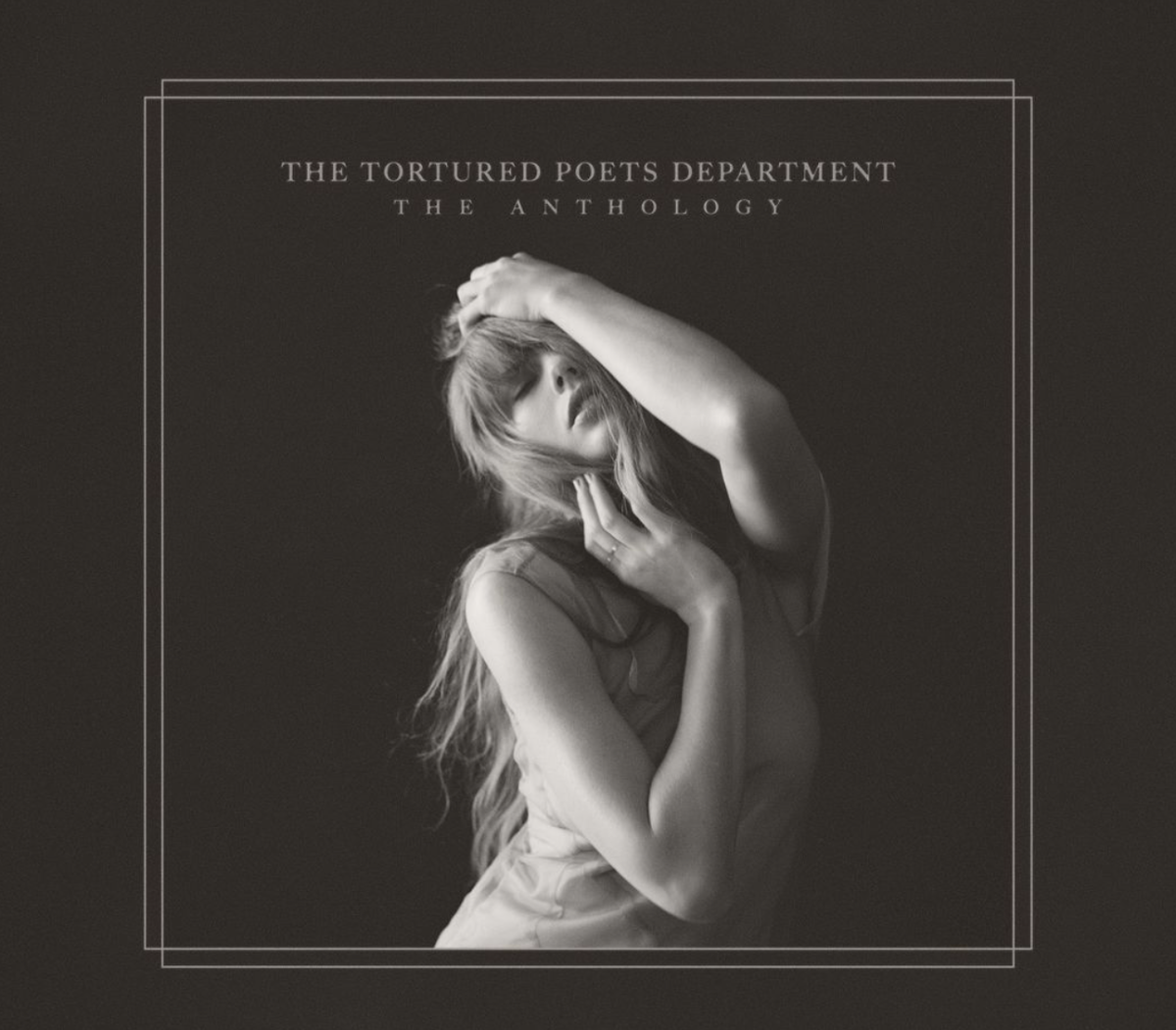A double album with 31 new songs. Taylor Swift has done it again — given us too much to listen to in one sitting and too many songs for me to add to my various playlists. April 19’s release of her 11th studio album “The Tortured Poets Department” and its surprise second album, “The Tortured Poets Department: The Anthology,” was an overwhelming one, copiously filled with obsessive mania, difficult themes and a jarring mix of the poetic lyricism of “evermore” and the signature synths of “Midnights.”
Safe to say, I love it.
After going through multiple listening sessions, I’ve compiled a short list of my favorites. “Down Bad” has been on repeat, whether I’m at Ram Fit suffering through a 7 a.m. workout or on the Metro North to go to my hosting job. “Florida!!! (feat. Florence + the Machine)” is a cinematic masterpiece, and I can’t wait to listen to it when I’m driving again. “I Hate It Here” and “The Prophecy” hit a little too close to home, and “I Can Do It With a Broken Heart” perfectly describes being a girl who’s good at compartmentalizing her emotions. Some of my other stand-outs include “Fresh Out The Slammer,” “So Long, London,” “Who’s Afraid of Little Old Me?” and “The Black Dog.” (Can you tell I vibe with the synths?)
“Tortured Poets” has come with mixed reviews, tied to the uncomfortability and intentional unrelatability of the overall album. One thing Swift is very good at is writing her deeply personal stories in a way that feels communal to the masses. This is how she’s been able to stay at the top of the music charts, after all. However, “Tortured Poets” is different. This doesn’t feel like a possible Album of the Year winner, nor is this an album that would be a marketable tour — and that is exactly the point.
This doesn’t feel like an album that’s supposed to be digested easily. But let’s be real here: it’s not hard to understand these themes. If I’ve learned anything from this album release, it’s that a lot of people lack simple reading comprehension skills. That sounds mean, but it’s true. The lack of critical thinking going on online is baffling. What happened to metaphors? What happened to looking at context clues? Of course, art is always up for interpretation. But when that interpretation is reading one line and taking it at face value rather than looking at the whole picture, — a very detailed picture, might I add — it shows that most online critics of “Tortured Poets” probably did not pay attention in their high school English classes.
One instance of this is regarding a lyric from “Who’s Afraid of Little Old Me?” that states, “You wouldn’t last an hour in the asylum where they raised me.” The number of tweets taking it at face-value, claiming “the ‘asylum’ in question” is her large childhood home in Pennsylvania, makes me laugh. In my interpretation, she is talking about the constant spotlight put on her since she was a teenager, and this would be a pretty simple conclusion for anyone if they just looked at both her career and the rest of the song. The life of a child star is the asylum, and critics who don’t understand her lyrics definitely could never understand the life she has lived. One user quote-tweeted exactly how I feel about this: “I’d say you have rocks for brains but you’d probably tell me that’s biologically impossible.”
Moving on, the idea that Swift’s level of fame comes at a steep price is a theme found throughout the album. The final song in the original album, “Clara Bow,” discusses how living for the approval of others is a curse and that women can never just be considered “good” without that being followed by a disparaging remark about another woman. “But Daddy I Love Him” directly calls out fans who attacked Swift for her rumored relationships: “I’ll tell you something about my good name / It’s mine alone to disgrace / I don’t cater to all these vipers dressed in empath’s clothing.” A controversial song for a few different reasons, “I Hate It Here,” states in the first verse, “You see, I was a debutante in another life, but / Now I seem to be scared to go outside.”
The fear of the public’s opinion doesn’t even scratch the surface of subjects covered in “Tortured Poets.” There are many mentions of substance abuse, suicidal ideation and mental health issues, paired alongside religious themes — “Guilty as Sin?” — and prison cages — “Fresh Out The Slammer.”
“Tortured Poets” is not totally different from her usual style, though. The repeated beats in “So Long, London” remind me of the anti-climatic ones of “The Archer.” The comedic quips sprinkled throughout the album are relatable to the way we use humor to cope with our hardships, something Swift has done many times before. “The Smallest Man Who Ever Lived” has the classic, never-ending, gut-wrenching bridge she’s made her signature. Pop-queen producer Jack Antonoff and Swift have found their personal style, formulaic beats from the original “1989” up to her 10th studio album “Midnights,” while the more acoustic productions of Aaron Dessner showcase Swift’s songwriting abilities the best, as we already saw with the sister albums, “folklore” and “evermore.”
Written over the past two years, Swift’s diary has been exposed in the form of 31 songs, for better or for worse. “This period of the author’s life is now over, the chapter closed and boarded up. There is nothing to avenge, no scores to settle once wounds have healed,” Swift wrote on her Instagram. “Once we have spoken our saddest story, we can be free of it. And then all that’s left behind is the tortured poetry.” This was not an album for the fans, for the general public or for the Recording Academy, but finally, only for the tortured poet herself.







































































































































































































